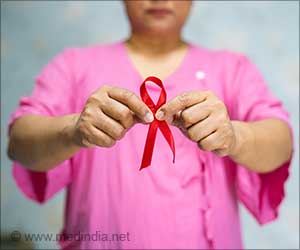Data from clinical trials on the safest and most effective treatments for lung cancer in the age group of over 70 are scarce

According to Paolo Maione, Antonio Rossi, Cesare Gridelli and colleagues from S.G. Moscati Hospital in Avellino, Italy, elderly patients have more co-morbidity and don't tend to tolerate toxic medical treatments as well as younger patients. This means that clinical findings from studies on younger populations don't necessarily apply to the majority of elderly patients with NSCLC.
More than half of all cases of advanced NSCLC are diagnosed in patients over 65, and recent Surveillance, Epidemiology and End Results (SEER) Program data from the United States show that patients aged 70 years or older account for 47 percent of all lung cancers. Most prospective clinical data on chemotherapy and molecularly targeted therapy for elderly NSCLC patients come from studies in advanced disease. Unfortunately, by the time most patients from any age group receive a lung cancer diagnosis, the majority already have metastatic disease and a systemic, palliative treatment is their primary therapeutic option.
Cisplatin-based chemotherapy is currently recommended as the standard approach for patients with advanced NSCLC. However, to date, no prospective phase III study has explored the reproducibility of this benefit in elderly patients, the authors say. "The evaluation of cisplatin-based chemotherapy in elderly patients, in our opinion should be a priority," says one of the study authors, Cesare Gridelli.
A number of phase II and III clinical trials show that single-agent chemotherapy with third-generation agents (vinorelbine, gemcitabine or taxanes) is the routine standard of care in elderly advanced NSCLC patients. The authors performed their own phase I/II trials looking at attenuated doses of cisplatin combined with gemcitabine or vinorelbine in elderly patients with advanced NSCLC. Their results were published in 2007, and in particular show that gemcitabine combined with cisplatin deserves comparison with single agent therapy for this patient group. The researchers are now launching a phase III randomized trial of cisplatin plus gemcitabine versus gemcitabin.In addition to these chemotherapy treatments, targeted therapies are also available. Oncologists have tested epidermal growth factor receptor (EGFR) tyrosine kinase inhibitors, erlotinib and gefitinib, in phase II prospective trials on older patients. They showed that these drugs were a good first line treatment option. The United States Food and Drug Administration (FDA) has recently approved gefitinib for first-line treatment of patients whose tumors are positive for EGFR gene mutations. This means that screening lung cancer patients for EGFR gene mutations will have an important role in decisions about treatment, and will benefit elderly patients, too.
However, another targeted treatment option for the general patient population, using the monoclonal antibody bevacizumab combined with chemotherapy, may be less suitable for the elderly due to their higher likelihood of co-morbid cardiovascular illnesses.
Advertisement
Since 2000, oncologists have noticed that incidence of and death from lung cancer among women aged 50 and below has actually decreased. However, for women aged 70 and older these have increased. For men, mortality has been decreasing for all age groups except among men aged 70-74, where it has leveled off.
"Elderly-specific trials provide quality care in the elderly, particularly among the oldest of the old," says Gridelli. "This patient population is at risk of both empirical under treatment resulting in poor survival or excessive toxicity from standard therapy."
The authors are continuing to conduct and publish their prospective trials of a number of lung cancer treatments on elderly patients, to ensure that the data is available for oncologists to make the best choices for their oldest patients in years to come.
Source-Eurekalert
RAS















